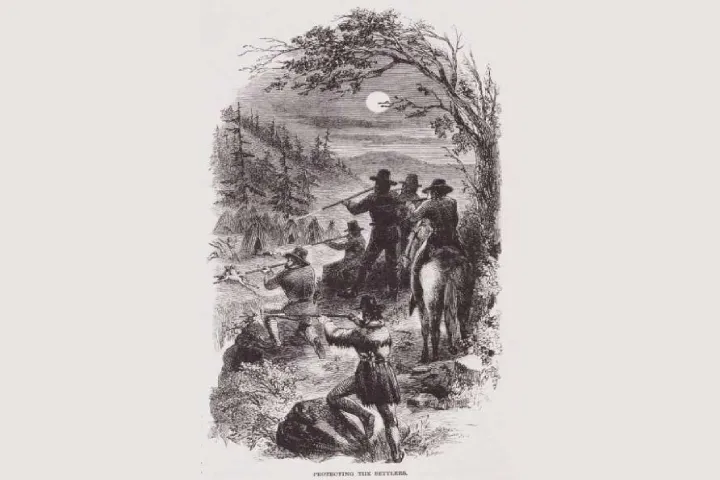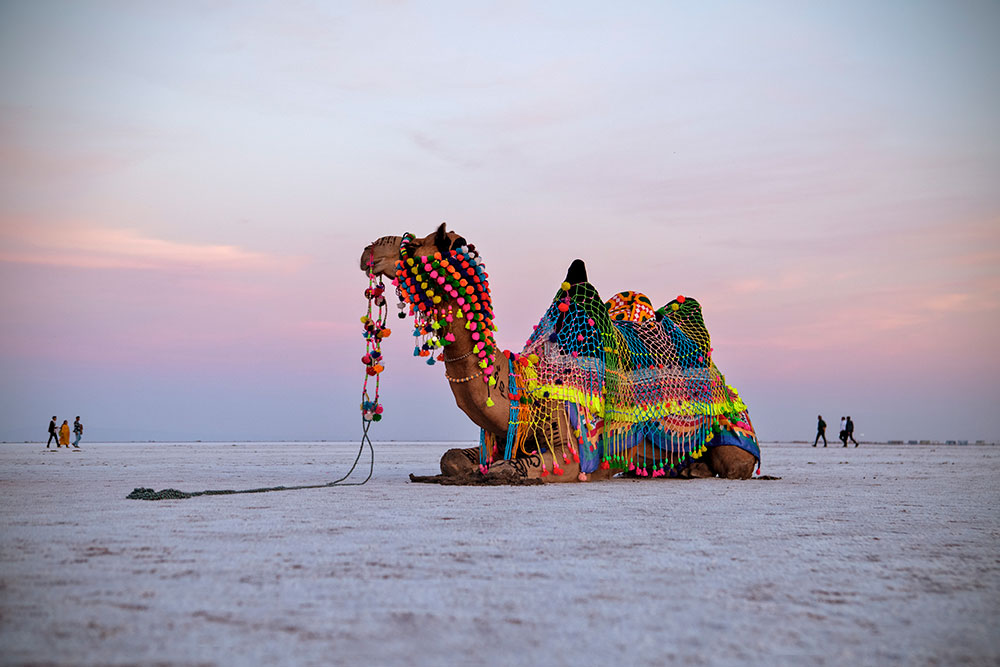Whatever is happening in Balochistan is comparable to the California Gold Rush (1848-1855). It not only destroyed the livelihoods of the locals but also led to their genocide which, many say was authorised by the authorities, writes Mark Kinra
Balochistan remains in the news for its separatist movements, the Pakistani Army’s human rights violations, and the China Pakistan Economic Corridor (CPEC) but December 2022 was unusual as Reko Diq mines captured eyeballs across the world. After its inception in 1993, there was hardly any progress for the next 20 years because of a bitter legal dispute.
This article dwells on the history of the Reko Diq project, legal issues, Pakistani politics and whether it will benefit the Baloch people at all.
Troubled History of the Reko Diq Project
Reko Diq is located in Chagai district, Balochistan, close to the Iran-Afghanistan border. The trillion dollar mine was discovered in 1978 and is estimated to have large copper and gold reserves. In 1993, the Balochistan Development Authority (BDA) entered into a joint agreement with BHP Minerals Intermediate Exploration Inc. (BHP) jointly called the Chagai Hills Exploration Joint Venture Agreement (CHEJVA). Dispute resolution and jurisdiction under CHEJVA were stated as Pakistani law and Arbitration. CHEJVA involved the exploration and mining of minerals, specifically copper and gold with BHP getting 75 per cent, and the Balochistan Government getting 25 per cent on a joint investment basis with a 2 per cent royalty from the deal.
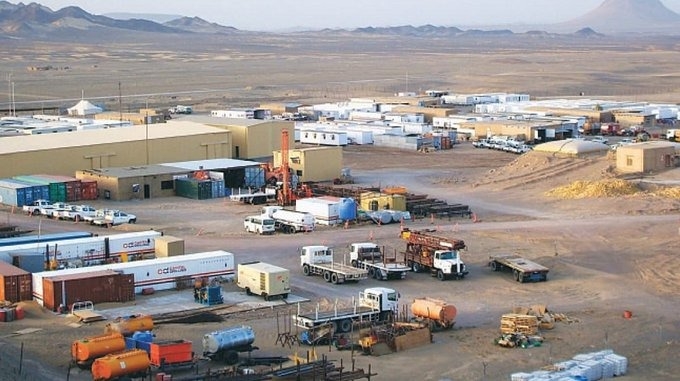
In March 2000, the Balochistan Government and BHP signed the first Addendum to the CHEJVA which made BHP an Agent of the Province of Balochistan. In May 2000, BHP entered into an Option Agreement with Mincor Resources. The Agreement established an exploration alliance that gave Mincor the right to explore, develop, exploit, and acquire mineral resources on exploration licenses held by BHP. The Agreement also gave the sole and exclusive right to Mincor or its nominee to enter into Alliance with BHP to explore copper and gold in the region. Mincor nominated the Tethyan Copper Company (TCC) an Australian company under that provision.
In April 2006, the Balochistan Government, BHP, and TCC entered into a Novation Agreement. The agreement substituted BHP with TCC as a party to CHEJVA and further provided TCC with the rights and responsibilities of BHP under CHEJVA.
TCC was equally and jointly owned by Barrick Gold Corporation of Canada and Antofagasta plc of Chile.
In 2006, numerous third parties challenged the legality of CHEJVA in the Balochistan High Court. The High Court dismissed the petitions and found CHEJVA to be legal and valid.
In 2011, TCC had to stop operations as the Balochistan Government refused to grant a mining license. TCC challenged the refusal stating involvement in the project since 2006 and adding that TCC has invested more than $260 million on exploration and technical studies.
Both parties filed cases against the other – one against TCC in Pakistan’s Supreme Court and another filed by TCC in the ICSID tribunal. In Pakistan’s Supreme Court, petitioners argued that CHEJVA was executed contrary to the Pakistani statutes while TCC sought specific performance of contract and damages.
In 2013, Pakistan’s Supreme Court held that CHEJVA was void on several public policy grounds including corruption in making and executing CHEJVA. The court stated that because CHEJVA was void, therefore, all of the subsequent agreements were void including the Addendum, the Option Agreement, and the Novation Agreement.
TCC filed a case in ICSID under the Australia-Pakistan Bilateral Investment Treaty (BIT). ICSID accepted TCC’s reasoning that the BIT covered investments accepted into the host state at the time of their establishment, not only legally established investments. Tribunal pointed out that Pakistan did not mention CHEJVA’s invalidity when negotiating the 2006 Novation Agreement and that the Pakistani Supreme Court decision was based on the Balochistan Government’s breach of its internal laws, not TCC’s actions. In 2019, ICSID ordered Pakistan to pay $5.9 billion in compensation, interest and legal costs to TCC for breaches of the Australia–Pakistan BIT.
Trouble started brewing for Pakistan when the British Virgin Islands Court passed the order to attach properties of Pakistan International Airlines Investment Ltd (PIAIL), a state-run company officially registered in the British Virgin Islands; properties included Roosevelt Hotel in New York and the Scribe Hotel in Paris. It was then that alarm bells started ringing in Pakistan as it would not just lose financial assets across the world but more worrisome was the reputational damage for current and potential investors in Pakistan. It was then Pakistan started to talk to TCC’s joint owners for settlement namely – Barrick Gold and Antofagasta.
Barrick Gold and Antofagasta reached an agreement with the Pakistan Government for the reconstitution of the Reko Diq project in Balochistan. Antofagasta decided to exit the agreement for consideration of $945 million and shares to be acquired by a consortium of Pakistani state-owned enterprises. The New Agreement has been devised with the stakeholders–Barrick Gold, Pakistan and Balochistan getting 50 per cent, 25 per cent and 25 per cent holding with 10 per cent as free-carried basis.
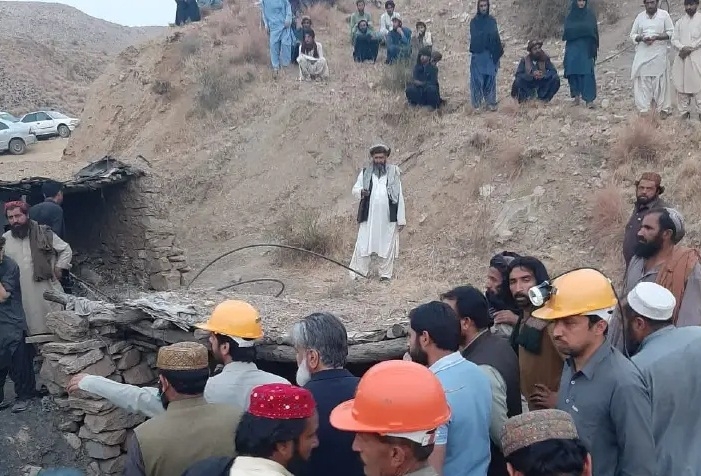
Legal Loopholes and Politics
From day one, the Reko Diq project was touted as a corrupt deal and the Pakistan Government fought against it. Even a decree was passed against the same in Pakistan’s Supreme Court. Under pressure of paying billions of dollars in compensation, the Pakistan Government had to reverse the same for which it took the help of executive and judiciary.
Pakistan passed the Foreign Investment (Protection and Promotion) Act, 2022 or FIPP Act, 2022 to safeguard Barrick Gold’s interest whereby various relaxations were provided under the Act. Further, the Pakistan Government took over the responsibilities of the Balochistan Government under this Act for the Reko Diq Project.
The idea of settlement and re-engagement over the Reko Diq project was challenged in Pakistan’s Supreme Court on two counts – i) whether the 2013 Judgement on Reko Diq prevents parties from entering into new agreements or affects validity? ii) Whether FIPP Act, 2022 is constitutionally valid?
On the first question, the Pakistan Supreme Court stated that the agreements are being signed by authorities which are competent to do so under the law. It also said that agreements have been put in place after due deliberation which is constitutional on the parameters and grounds spelt out in the 2013 Judgement on Reko Diq.
On the second question, the FIPP Act, 2022 gives powers to the federal government to enact laws which are under the jurisdiction of provincial assemblies like mines and mineral development (other than minerals used for nuclear energy). The Court stated that parliament will be competent to enact laws under provincial jurisdiction provided the draft resolutions are passed by the provincial assembly of Balochistan. The Supreme Court thus endorsed the settlement with Barrick Gold over Reko Diq mines as it is backed by law and is approved by the authorized representatives of Balochistan.
It is interesting to see how law and politics played their part. Legally speaking, the 18th Amendment to Pakistan’s 1973 Constitution took important steps towards devolution of authority and enhancing provincial autonomy. Before this amendment, legislative power of the centre and the provinces were enumerated under two lists: federal and concurrent, unlike India which has three lists: union, state and concurrent. Post the 18th Amendment, subjects under the concurrent list with a few exceptions have been transferred to the provinces in an implied manner as currently the Constitution only mentions the federal list.
While some autonomy was provided, the Constitution had other provisions wherein the federal government holds the upper hand. Articles 144 and 147 of the Constitution allow the federal government to take over the matter of the provinces and legislate on that subject, if a resolution has been passed on the same by the provincial assembly.
Politics played a big part in the Reko Diq Project and it wouldn’t have been possible without the provincial assembly’s resolution. Currently, the Balochistan Awami Party (BAP) has the mandate and is running a coalition government with other parties in the province. On 10 December 2022, the Balochistan Assembly passed a resolution thereby granting executive authority to the Federal Government concerning the Reko Diq Project.
I spoke to several Pakistani legal experts to understand the constitutionality of the Reko Diq Project.
Dr Ahsan Rajput, UK-based Lawyer who represented TCC in 2013 and is currently an Advisor to the Pakistan Government on Legislative Reforms says: “Pakistan, in it’s true sense, became a confederation after the 18th Amendment. Articles 144 and 147 of the Constitution have rarely been utilized to take over the executive authority of the province by the federal government, therefore, I believe that the Reko Diq project’s reconstitution process has been carried out openly and carefully and in no way violates the Constitution or fundamental rights of the people”.
While Kachkol Ali Advocate, human rights lawyer, ex-opposition leader and former member of the Balochistan Assembly says: “according to Pakistan’s Constitution, if any matter does not find mention in the federal list then it is called ‘residuary power’ which is called provincial autonomy. Unfortunately, the Balochistan Assembly has itself eroded its constitutional right through a resolution and, empowered the federal government to legislate and act in the context of Reko Diq”.
Another Advocate whose identity is not disclosed for security reasons, practising in the Balochistan High Court and the Federal Shariat Court told India Narrative: “Mining has always been a provincial subject under the Constitution of Pakistan, 1973 but the federal government has always used its powers ultra vires. The Balochistan government is a rubber stamp and puppet at the hands of federal government, therefore, this 18th Amendment has brought no legal effect on Balochistan”.
Is it a Gain for Balochistan and common Baloch?
As per the new agreement, Balochistan’s share will be 25 per cent out of which 10 per cent will be on a free-carried basis. Dr Rajput says “percentage on a free-carried basis will be the net value of the gold extracted which will be calculated at the current market rate as determined by the independent commission”.
Coalition partners of the Federal Government, BNP(M) and JUI(F) which have major stakes in Balochistan were not pleased and sought displeasure to which the federal government promised to increase the share of Balochistan by 35 per cent. The federal government, however, hasn’t given details as to when this will be done and on what terms.
Kamal Baloch, Senior Joint Secretary, Baloch National Movement says: “BAP was formed just a few days ago from the 2018 election by scrambling politicians from different political parties who are close to the Establishment. Balochistan never really had a democratic government except for the National Awami Party in 1970. Every government formed in Balochistan is as per the wish of the Establishment”.
He further says: “BAP accepts whatever the Establishment says, be it mega projects that the Baloch are opposing like the Gwadar fishermen where protestors were arrested and curfew was imposed or the issue of enforced disappearances. Balochistan also doesn’t have strong Opposition, BNP(M) did protest against the Reko Diq project but it is well known that BNP(M) helped Abdul Quddus Bizenjo to become the Chief Minister of Balochistan which shows how BNP(M) is close to the Establishment. Fazl-ur-Rehman is the man of the Establishment, he is the one who led the fight against PTI Chief Imran Khan and is always close to the power corridors – be it federal or provincial. The common Baloch is not in favour of the Reko Diq Project, Establishment is running the show and these politicians are puppets”.
Barrick Gold like any other mining company is not a dove and has been in the news for numerous scandals from toxic spills to human rights abuses, polluting water and taking over indigenous lands, making these inhabitable for decades. The concern is increased when the host state is itself not ready to safeguard the interests of its people.
Pakistan has safeguarded its interest and saved its reputation by renegotiating with Barrick Gold for Reko Diq but the assets which are being leased belong to Balochistan and the losses, if any, will be of the Baloch people only.
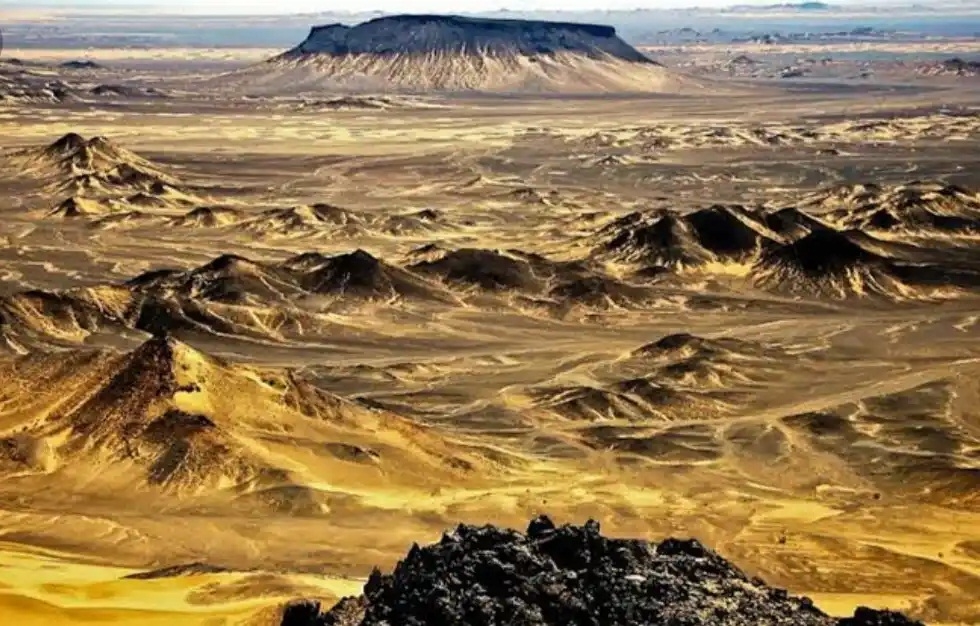
How the Law Favours Barrick Gold
FIPP Act, 2022 seems to have sold Reko Diq mines to Barrick Gold.
Section 3.10 states rights conferred to Barrick Gold by this Act shall continue to be available to such Investors even if this Act is repealed or amended.
Section 3.11 illustrates that the protected benefit as provided under various laws concerning tax, customs, duties etc. will continue to a maximum period of 30 years and cannot be withdrawn or modified or suspended in any manner that is disadvantaged to the Investor.
Section 3.6 and Section 3.7 enumerates that the Federal Government can provide additional incentives to the protected benefits by way of notification and once given cannot amend the same.
And lastly, Section 14 clearly states that in the event of any conflict between this Act and any other law whether enacted before or after this Act, FIPP Act, 2022 shall prevail.
Financial advisors to the government of Pakistan have stated that Balochistan will receive $32.7 billion over the lifetime of the mine which is worth $3 trillion. Other low estimates state that the mine is worth a minimum of $1 trillion. If we accept this calculation, then Balochistan will receive just 3.27 per cent in monetary terms in a best-case scenario.
Whatever is happening in Balochistan is comparable to the California Gold Rush (1848-1855). A period when gold miners from across the world came over to California to make their fortune. It contributed greatly to the American economy and brought statehood to California but had severe consequences for Native Americans. It not only destroyed the livelihoods of the locals but also led to their genocide which, many say was authorized by the authorities.
Similarly, Pakistan has sealed the fate of the indigenous Baloch by way of the FIPP Act, 2022 which cannot be undone. Pakistan, on the other hand, has saved itself from billions of dollars of penalties and by the time Reko Deq is exploited, nothing will be left for the local Baloch who are fighting for a separate nation.
Pakistan has largely adopted a colonial mindset towards the Baloch people where it has bombed them hundreds of times and used armed forces to crush any protest. Pakistan has unleashed “enforced disappearances” and death squads as a weapon to threaten the people.
A recent statement by XII Corps Commander Asif Ghafoor that anyone who protests in Gwadar will be put in jail clearly shows Pakistan is more interested in mega projects like CPEC or Reko Diq and will continue to subjugate and exploit the Baloch community. With all these factors, Balochistan is looking at the new California Gold Rush.


